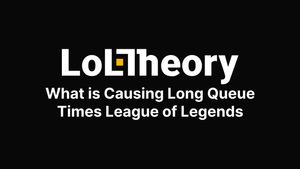Tired of staring at the "In Queue" screen? You're not alone.
Players on some servers have endured agonizingly long queue times since the rollout of League of Legends Patch 13.21.
This article dives into why this is happening and what you can do about it. Stick around for expert insights, player reactions, and potential fixes for this frustrating issue.
Key Takeaway: Long queue times in Patch 13.21 are mainly affecting servers due to several factors, including algorithm complexity and player pool size. While Riot is likely to issue fixes, understanding these factors can help you make the most of your gaming time.
Technical Side of the Issue
Ah, long queue times in Patch 13.21 have been a hot topic in the League of Legends community, especially on minor servers. Let's dive into the nitty-gritty technical aspects.
- Server Capacity: Servers often need a more robust infrastructure than their larger counterparts. Consequently, any changes in matchmaking algorithms can bog down the system.
- Algorithm Complexity: Patch 13 introduced more intricate matchmaking criteria. The server has to work harder to find your "perfect match," extending wait times.
- Player Pool: On servers, the player pool may be smaller. Throw in specialized matchmaking, and you've got a recipe for longer queues.
- High ELO Bottlenecks: If you're a top-tier player, the new patch makes it even harder to find an equivalent match, resulting in long waits.
- Role Popularity: Roles like Mid and ADC are incredibly popular. The new system needs help to balance teams when everyone wants the same roles.
- Time of Day: Off-peak hours can exacerbate the issue. Fewer players mean fewer matches to make.
- Bugs and Glitches: Let's not discount the possibility of software bugs throwing a wrench into the system.
So, what's the takeaway? If you're facing unbearable wait times, these factors are likely culprits. However, please don't lose hope; Riot is known for its frequent updates and hotfixes. Keep an eye out for patch notes that address these issues.
Role-Based Matchmaking vs Traditional System
Role-based matchmaking tries to place you in your desired role. The intent is a more balanced, enjoyable game. In contrast, traditional systems focus on skill level, not roles.
They aim to put equally skilled players together, irrespective of their preferred positions.
Here's the kicker: role-based systems often lead to longer queues, especially on minor servers. Why? Because it's not just about skill anymore; it's about finding the perfect team composition.
In a smaller player pool, achieving that balance becomes a herculean task, causing delays. Traditional systems, less finicky about roles, generally get you into the action faster.
How Patch 13.21 Is Disrupting Queue Balance
A new patch like 13.21 can throw the queue balance out of whack for several reasons:
- Algorithm Tweaks: Every patch risks introducing variables that the matchmaking algorithm must adjust to, creating inefficiencies.
- Player Behavior Changes: New patches often bring new metas. Players flock to try the changes, skewing the role distribution and making it harder to find balanced teams.
- Server Load: Patches can attract lapsed players back to the game, increasing the server load and potentially affecting queue times.
- Inherent Bugs: New patches are notorious for bugs that could inadvertently affect queuing.
- Skill MMR Resets: Sometimes, a patch might reset or adjust skill ratings, requiring the system to 're-learn' player skills for matchmaking.
Understand that Patch 13.21 isn't just about champion adjustments or new skins; it's a complex update affecting the game's very fabric.
Even if you're on a minor server, you're not alone in this; Riot is likely already on it.
Player Response to Long Wait Times
When long queues hit, players are quick to voice their frustrations.
Social media platforms like Reddit and Twitter become hotspots for venting and sharing "waiting room" memes. Some even resort to multi-accounting, hoping for quicker matches on alternate accounts.
Others, determined to stay loyal to their main account, often switch to less popular roles just to cut down on wait times. Meanwhile, a few take the opportunity to scrutinize patch notes, seeking clues or upcoming fixes.
Although Riot's forums might be flooded with constructive feedback, the sentiment generally leans toward urgency for a quick resolution.
In essence, the community response is a blend of frustration, adaptation, and hopeful anticipation for the next update.

